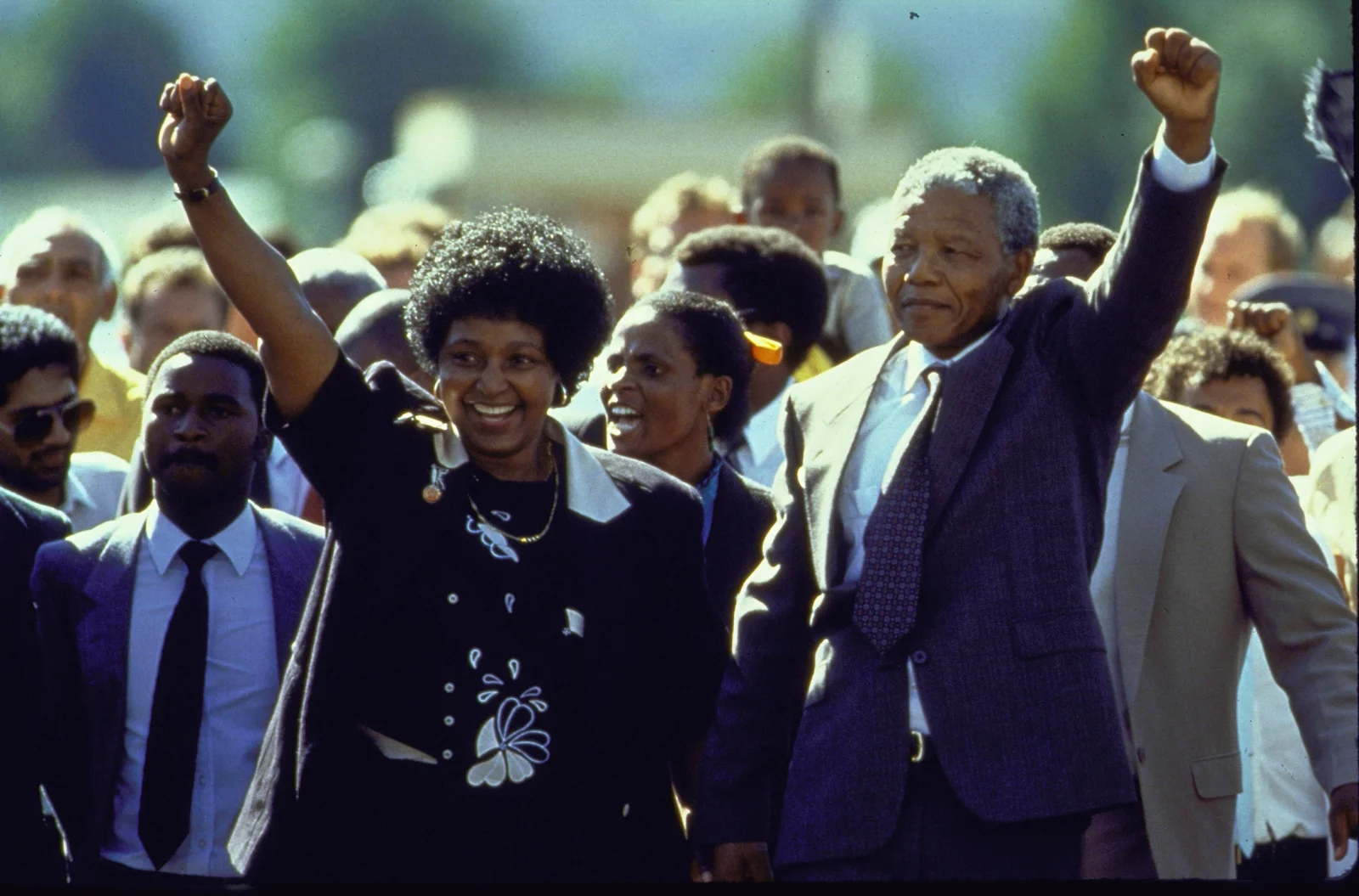
Yves Michel-Dumond
Yves Michel–Dumond is freelance camera operator, AP Journalist, and a former member of the Guild of Television Camera Professionals (GTC). During his career behind the lens, he has captured iconic moments in news history including Nelson Mandela’s walk to freedom and his first press conference after release, pivotal moments in South Africa’s history.
The release of Nelson Mandela after 27 years in captivity on 11 February 1990 was a history-defining moment. His dramatic walk from the gates of the prison, hand in hand with his wife Winnie, captivated the world and ushered in the end of apartheid in South Africa. Freelance camera operator and AP journalist Yves Michel-Dumond was witness to history being written as he captured the walk to freedom and press conference for Canada’s CBC News network.
Cry Freedom
Scenes of widespread joy and celebration greeted the release of Nelson Mandela. Tens of thousands of people gathered outside Cape Town’s Victor Verster Prison while hundreds of thousands more watched on television. He walked out of the gates and into the arms of his wife. The two embraced in a tearful reunion, a poignant scene as the global media watched on. Yves’s recalls the moment, “I was outside the gates and wanted get a shot with Mandela walking through the gate with a raised clenched fist. It is the symbol of freedom in South Africa. I positioned myself behind and slightly above the crowd with a stepladder. The gates opened and I could see Mandala walking with Winnie. I said to myself, finally he is free, South Africa is going to change”.
Meet the Press
Mandela gave a brief speech on the evening of his release. 100,000 people squeezed into the Grand Parade grounds around Cape Town’s City Hall to hear him speak. The area had the energy of a rock concert, but after just 30 minutes Mandela was whisked away to spend his first night of freedom. A global press conference was scheduled for the following day at the Bishopscourt home of Archbishop Desmond Tutu. Yves’s recalls planning for the momentous occasion. “I was there early, and Archbishop Tutu asked me to help him plan where the conference was going to be. Inside the house, the rooms were so small. I looked out into the garden and said we can do something in the garden.” After working out where the sun would be, Yves scouted the grounds for the best location. “I found a small hill with some trees providing cover for a table and some chairs.”
Over two hundred members of the world’s media gathered in the garden for the press conference, eager to hear Mandela speak. Yves positioned himself and his camera to get the best shot. “I decided where Mandela was going to be seated, and then I put my tripod right in front of the chair. As a camera operator on an occasion like this, you get one shot. You cannot miss it. If something happens. You cannot ask people to do it again.” Recalling the atmosphere in the garden, Yves says, “The night before, it was highly emotional. Everybody was crying and shouting. This time, there was silence. Palpable anticipation. The hair on the back of your neck and arms stood up.”

Passport clues
Originally Yves was travelling to South Africa to cover the opening of parliament when he got a major clue that he was potentially going to film a piece of history. He says, “To get my visa I had to give my passport to the South African embassy, a few days later I got it my passport back with a stamp, I look at the visa and it was written ‘the release of Mandela plus parliament opening speech’.
I said my god, it is written on my visa that I’m going to South Africa for the release of Mandela, but nobody knew that he was going to be released. We suspected that during the opening of the parliament, they would mention Mandela, but nobody knew. And I said look, it’s a written on my passport. That’s something I look at. I have friends that don’t have this on their stamp. I couldn’t believe I got this on my passport.”

Hope and Glory
The release of Nelson Mandela marked a pivotal moment in South Africa’s history and a testament to the power of grassroots activism and international pressure to bring about positive change. Mandela’s legacy as a leader and a symbol of hope and justice continue to inspire people around the world. And for Yves, the opportunity to capture such a remarkable moment in history will always stay with him.
“For me, to be in South Africa, it was emotional. Mandela’s walk from the compound and his speech. These were significant moments. It’s part of our job as camera operators to capture and share moments like this. I’m so lucky. I cannot say it’s a job. I feel I’ve never worked a day in my life. I had the passion and being with Mandela it was a wonderful time for me.”
”“Nelson Mandela wasn’t just a guy who got out of prison, he changed world. That was a great moment and the emotional time.”
Special thanks to GTC Camera Operator Yves Michel-Dumond, The Guild of Television Camera Professionals (GTC) & Paul Cook Films.



